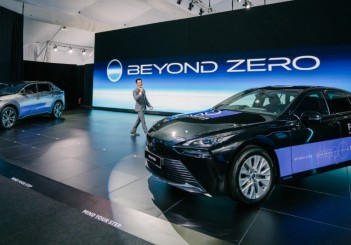NAGOYA: Toyota Motor Corporation announced its joint development efforts with Denyo for a fuel-cell power supply vehicle that uses hydrogen to generate electricity.
Denyo, a leading Japanese manufacturer of portable mobile generators, will begin its testing phase before commercialising it.
The effort has been selected by Japan's Ministry of Environment as a Low Carbon Technology Research and Development Programme.
Both companies believe that in order to really see an impact on reducing carbon dioxide (CO2) levels, fuel-cell technologies need to be applied to commercial and industrial vehicles.
In addition to global rising CO2 issues, the vehicle can also be deployed to supply electricity when and where it is needed in a range of scenarios including disaster-stricken areas with power outages and entertainment venues such as outdoor concerts.
At current, power generating vehicles use diesel to help generate electricity which not only emits (CO2) but also and nitrogen oxide (NOx).
Fuel-cell power supply vehicles such as this emit water (H20) as a byproduct and can generate up to 72 hours of continuous power supply while providing water for showers and other uses.
The technology of the fuel-cell power supply vehicle comes from Toyota's Mirai Fuel-Cell Electric Vehicle (FCEV) which was developed by Denyo under a programme subsidised by Japan's Ministry of Environment.
The equipment has been fitted into Toyota's Dyna light-duty trucks which can carry up to 65kg of hydrogen that's stored in 27 high-pressure tanks for a total of 1,626 litres.
The truck will have approximately 612kWh of power supply and should be able to provide roughly 450 litres of pure water.
With testing already commenced, it will be compared against conventional engine-based power generators including their impact on various load equipment and reduction in CO2.










